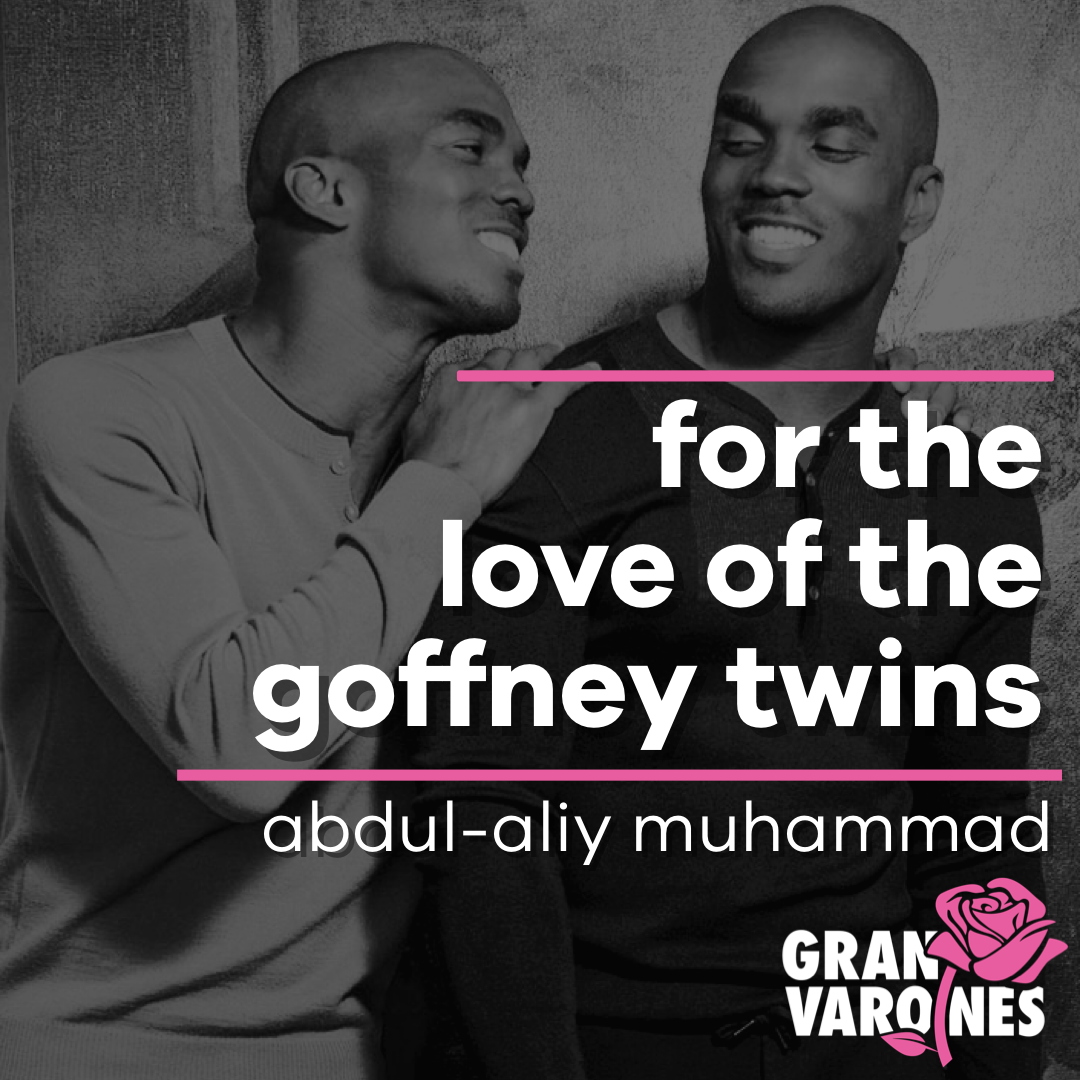You may remember the story: It was sensational and on the front page of the Philadelphia Daily News. They were Black twins dubbed by the media as “twin gay-porn stars” who had been charged with burglary in February 2008. Charged with breaking into a beauty shop in South Philadelphia, the Goffney twins from New Jersey went from unknown to well-known as the press honed in on their past work in adult films.
This was a viral story, where the subjects were animated to heights of salaciousness. As often happens in these instances, after the convictions, the story faded away and there was little interest in understanding or humanizing the Goffney twins. Keyontyli, who now goes by Kyle, the twin who identifies as gay, was sentenced to time served while Ta’Leon, who now goes by Teyon, was sentenced to three years in prison.
On February 20, Teyon, at age 38, died of cancer. “REST IN PEACE MY BEAUTIFUL, BRAVE, BRILLIANT TWIN BROTHER!” Kyle wrote in a tribute online.
I remember following the 2008 story as it unfolded and feeling sadness at the way the narrative was spun. As a Black person who identifies as queer, I felt that the coverage of the burglary was undergirded by homophobia and that the shock from their history of sex work became a cause célèbre instead of capturing the complexities of their whole story. It was a case study for the ways that the incessant need for shock value in the media diminishes the need for nuance when discussing suspects of a crime, particularly when the subjects are Black and brown people.
As a reader of local news, then and now, I wanted more information about the lives of the two Black men I had seen ingloriously slayed by words, even before their convictions. Here were two people with complex and difficult lives, who made mistakes.
In the press, Kyle was depicted as the good twin and Teyon was framed as the mastermind behind the burglaries because of his prior contact with police and prison.
The brothers subsequently stopped speaking to each other for six years, according to a post by Kyle on Instagram. Kyle moved to California to continue to pursue modeling and acting and Teyon eventually got out of prison and wrote about his experience in “Infamy: The Sequel.” Media juxtapositions of the two undoubtedly played a role in straining their closeness. An Inquirer article from 2008 describes Kyle as having a promising modeling career while quoting a police source who describes Teyon as a “bad, bad dude.”
Looking back at the case of the Goffney twins is a reminder that the media’s flattening of non-white and non-cisgender people contributes to problems for reporting and storytelling. Media has a responsibility to cover people as individuals, to adequately capture the intricacies of who we are, and not create caricatures based on a few details about our lives.
When I think of the Goffney twins, I’m reminded of how easily someone can go from being someone unknown to infamous in a matter of days. It must’ve been jarring to have to contend with this kind of media attention and the court system at 25. In an interview with the Inquirer in 2008, Kyle said he didn’t want “this kind of infamy” for himself or his family. Their story is complicated, messy and real, but aren’t all of our stories? Embedded in their lives is also a narrative of redemption, struggle and reconciliation. It helps us understand the truth that we are more than our failures and our experiences are shaped by the decisions we make.
Both locally and beyond, the media is currently reckoning with the disparities in coverage when it comes to marginalized communities, including how subjects of crime are portrayed, following the uprisings that sprang from the death of George Floyd at the hands of Minneapolis police. Notably The Inquirer has stated that mugshots will be used infrequently in stories, because of how it disproportionately features Black and Latinx people. And the Kansas City Star, recently apologized for decades of racism in their reporting. This is a start but, there is much more that news organizations must do.
The truth, no matter how difficult, should be captured fully. Media must do more to capture the stories of Black people without just harping on the details that are shocking. May Teyon rest in peace and may his family find comfort in knowing him completely.
Abdul-Aliy Muhammad is an organizer and writer born and raised in West Philadelphia. @MxAbdulAliy


Leave a Reply